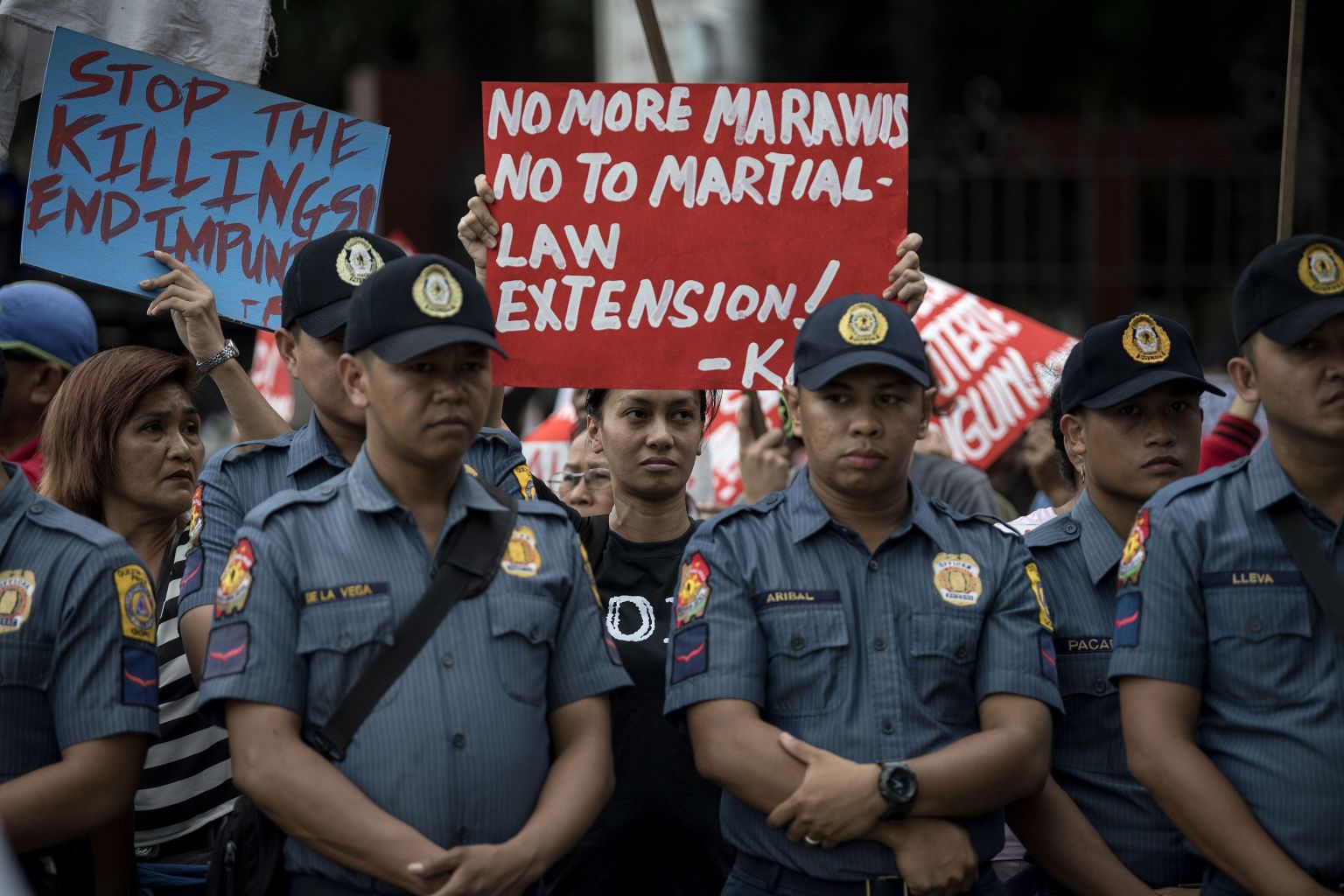Philippine high court backs one-year extension of Duterte martial law decree for Mindanao
Sign up now: Get ST's newsletters delivered to your inbox

Protesters at the gate of the House of Representatives in Manila, denouncing the Congress move to extend martial law in Mindanao on Dec 13, 2017.
PHOTO: AFP
Follow topic:
MANILA (AFP) - The Philippine Supreme Court on Tuesday (Feb 6) approved a one-year extension of President Rodrigo Duterte's martial law decree covering the southern third of the country, a ruling which a critic described as a blow to human rights.
Duterte initially imposed military rule across Mindanao - home to about 20 million people - in May last year, when the military was fighting a deadly uprising by pro-Islamic State in Iraq and Syria (ISIS) group militants in Marawi city.
Congress later endorsed his plan to prolong martial rule across the region until the end of 2018. But rights campaigners, warning of a looming dictatorship, asked the Supreme Court in December to block the extension.
"The President and Congress had sufficient factual bases to extend (martial rule)", the court said in a statement Tuesday, summarising the justices' 10-5 vote to throw out the petition.
"The rebellion that spawned the Marawi incident persists," it added, saying public safety required the extension.
Hundreds of gunmen rampaged through the Islamic city of Marawi in May last year in what authorities said was part of an attempt to establish a South-east Asian base for ISIS in the mainly Catholic Philippines.
A US-backed military campaign took five months to defeat the militants, with the battle claiming more than 1,100 lives and leaving large parts of Marawi in ruins.
Duterte declared in October that the city was "liberated" and military chiefs said militant leaders, including the ISIS leader in South-east Asia, had been killed.
But authorities have said that those who escaped are regrouping and recruiting in Mindanao.
Duterte, who is also waging a deadly drug war throughout the country, has repeatedly warned he may impose martial law across the entire nation to fight crime and terrorism.
Martial law is an extremely sensitive issue in the Philippines, after dictator Ferdinand Marcos used military rule to hold on to power a generation ago.
Opponents argued that extended martial law violated a constitutional provision limiting the initial period to 60 days.
However, Tuesday's Supreme Court ruling said the constitution was "silent" on how many times Congress may extend martial law.
The Supreme Court added that claims of rights violations under martial law were "speculative".
An Amnesty International report in November said troops detained and tortured civilians trying to flee Marawi.
Opposition lawmaker Edcel Lagman, who was among those who filed the petition, said Tuesday's ruling would lead to a derogation of civil liberties.
"The Supreme Court verdict will embolden President Rodrigo Duterte in flouting the rule of law," Lagman said.

